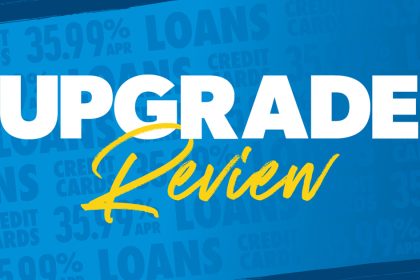If you have a rental property that is generating positive cash flow and is expected to appreciate in value over time, then you must hold onto it for as long as possible. The problem, however, is you might have tenant issues that make you want to sell.
Being a landlord is not for everyone. After 20 years of being a landlord, I’ve experienced it all—from late rent payments to property damage to all-night house parties waking up the neighbors. Being a landlord has tested my faith in humanity because some tenants really don’t care.
In 2017, I sold my largest rental property after my son was born. It was causing me too much headache because the only tenants I could find were college fraternity brother roommates. This generated tremendous turnover and damage to the home. The tenants were also late paying the rent eight times in a two-and-a-half-year period.
Even though I simplified my life by selling, I also felt like a failure for not being able to hold on. This rental property was supposed to be the cornerstone for funding our early retirement lifestyle.
As a result of my experiences, I am like the CIA when screening each prospective tenant. There is no stone I will not turn over to help ensure the prospective tenant will follow the terms of the lease. I would prefer to wait for the ideal tenant rather than rush a non-ideal tenant in to minimize lost rent.
Your Preference for Tenants as a Landlord Changes as You Get Older
When I was in my 20s and 30s, my number one priority as a landlord was to maximize rental income. I wanted enough passive and semi-passive income to cover my basic living expenses so I could leave a stressful job behind for good. I treated my rental properties as a business, as one should when so much capital is at stake.
Twelve years after escaping my day job in 2012, I’m now 47 and have a different perspective. I’m still looking to receive market rent for my rental properties whenever there is turnover. However, I’m no longer aiming to maximize rental yield over time.
Instead, I’m happy to not increase rents along with the market if I can keep good tenants in my properties for longer. I’d rather have low turnover and harmony than more money.
Having low turnover and harmony helps increase your odds of owning your rental property for longer. And the best way to build wealth is to own appreciating assets forever.
Tenants as Guardians of Your Property
After having kids, it became easier to own stocks, real estate, and other assets for a much longer time than I used to. No longer was I just investing for myself; I was investing for their future. I know in 20 years, when they are working adults, they will wish they could have bought stocks and real estate today. As a result, I buy and hold for them.
One of the key mental shifts I’ve used to help me own rental properties for longer is viewing my tenants as guardians of my properties rather than consumers. Instead of looking at my tenants mainly as a source of income, I now start to look at them as caretakers.
Sure, my tenants will still scratch, ding, and dent walls and doors. Tenants will still chip countertops and crack mirrors to my dismay. But by having a tenant in your rental property, you increase your chances of saving the property from unknown disaster.
And if you can prevent your rental property from experiencing an expensive problem, you also increase your chances of owning the property longer as well.
A Massive Leak Caused Tremendous Damage
I first started viewing tenants as guardians of my rental properties after a friend went to Lake Tahoe for two weeks during a family ski vacation. This was in 2021-2022 when it was particularly rainy in San Francisco that season.
When my friend got back to her house, she found her kitchen and two bedrooms flooded. There had been a leak in the roof that got bigger due to violent winds. It had also rained non-stop for two weeks.
My friend had to call the home insurance company to assess the damage. It determined the house was uninhabitable, and my friend and her family had to move out to a new home for a year. During this time, they had to rip out all the walls, floors, and appliances, dry out the home, and rebuild again.
If only there was someone living in the house who could have called a roofer or a handyman as soon as they saw the leak. My friend would have avoided so much hardship.
A Silver Lining to the Leak
The silver lining to this mishap is that my friend wanted to remodel the kitchen anyway. So at least she got a “free” kitchen, floors, and walls, thanks to his homeowner’s insurance policy. It just cost her the deductible and a lot of headaches with two kids.
This silver lining also reminds me that if you have an old house, it’s more worthwhile to get a replacement cost policy rather than an actual cash value policy. Although a replacement cost policy is more expensive, if she had an actual cash value policy, it would have only paid out for the depreciated value of his old kitchen, walls, and floors.
In other words, if you have a new home or newly remodeled home, you might consider getting an actual cash value policy for the first 10-20 years to save money. After 10 years, switch to the more expensive replacement cost policy to get a brand new home paid based on today’s new costs if something were to happen.
Tenants Are Your Eyes and Ears for Anything Abnormal
Landlords have generally viewed tenants as damagers of their properties through regular wear and tear as well as the occasional accident. These damages are baked into the cost of running a rental property. Protection from damage can be mitigated through a strong lease, a rental deposit, and tenants getting renter’s insurance. Despite all these, conflicts may still come up.
If you have a negative view of your tenants for whatever reason, it may help if you start viewing them as guardians. They are your eyes and ears for anything abnormal that happens. With a change in view, you should feel better the next time you have to interact with them.
There are people who own mansions who actually pay people to mansion sit for them. So in a way, you could view your tenants as providing a free service. But of course, it’s not quite the same.
Besides looking out for leaks, tenants can also look out for potential fires. Water and fire damage are the biggest concerns. By having a tenant in the rental property, a fire can be put out quickly compared to if there was nobody around. Then there are the occasional random natural disasters, like a tree falling on the deck and so forth.
There is a reason why some home insurance companies refuse to insure unoccupied homes or rental properties. They know that things can go very wrong without someone living in the home. Your tenant or guest is the first line of defense against something bad happening.
Guardians of Your Rental Until Your Kids Grow Up
If you want a real estate investing goal, consider owning one rental property for each kid, preferably in the same city as your primary residence. This way, you increase your chances of your kid living close by after college because there’s an affordable place to stay.
The rental property provides career insurance in case your kid can’t get a high-enough paying job to live independently. If affordable housing is hard to come by, the rental property will provide a place for your kid to stay. Finally, owning a rental property will help pay for your retirement, especially if it’s paid off once your kid is an adult.
However, if your kid is still young, as ours are, you might have to wait one or two decades before they are able to take advantage of the rental property. As a result, owning your rental property can be a test of endurance, especially if you have suboptimal tenants who don’t follow the lease.
If you can work things out with your tenants or find new tenants once the previous ones finally leave, you can work on viewing your tenants as guardians by telling them so and empowering them. Give them the green light to make any repairs immediately up to a certain dollar amount without your approval. This will help expedite problem-solving and give them agency.
With great tenants, you increase your chances of owning your rental until your children come of age. And like all insurance, you hope your rental properties are not needed to support them.
Good Tenants Can Reduce the Pace of Wear and Tear
Without insurance, a disaster can easily wipe out years of profits for the landlord. Good tenants can stop small problems from getting much bigger.
Given the high value of having a good tenant, it is worth spending extra time screening them carefully. Check multiple references, review all their finances, speak to them multiple times, have them get renter’s insurance, and draw up a thorough lease agreement. It’s not worth having irresponsible tenants for short-term gain.
If being a landlord isn’t for you, I get it. I’ve been managing rental properties for 20 years and still have my doubts whenever I sign new tenants. Every rental agreement is a leap of faith. The good thing is that everything can be worked out with time, money, and compromise.
As I get older, I’m all about minimizing headaches. As a result, I’ve been investing more of my real estate portion of my net worth into private real estate funds. Not only do I get to earn 100% passive income and distributions, I also get to diversify away from expensive San Francisco to other growing parts of the country that are cheaper.
Owning rental properties for financial security is a test of endurance. By viewing your tenants as guardians, you can endure longer and become wealthier as a result.
Have you ever considered viewing your tenants as guardians of your rental properties? How else have you been able to elongate the duration of your tenant’s stay?
Invest In Real Estate Passively
To invest in real estate passively without the stress or hassle of dealing with tenants and maintenance issues, check out Fundrise. Managing over $3.3 billion, Fundrise focuses on the Sunbelt region where valuations are lower and yields are higher. As mortgage rates finally decline, the demand for real estate should increase.
As always, past performance is no guarantee of future results. Invest only what you can afford to lose and won’t need. Fundrise is a sponsor of Financial Samurai, and Financial Samurai is an investor in Fundrise.
To expedite your journey to financial freedom, join over 60,000 others and subscribe to the free Financial Samurai newsletter.
Read the full article here


















